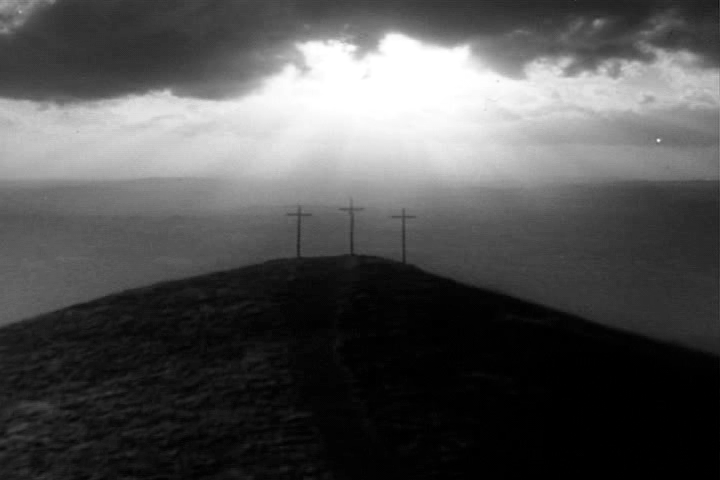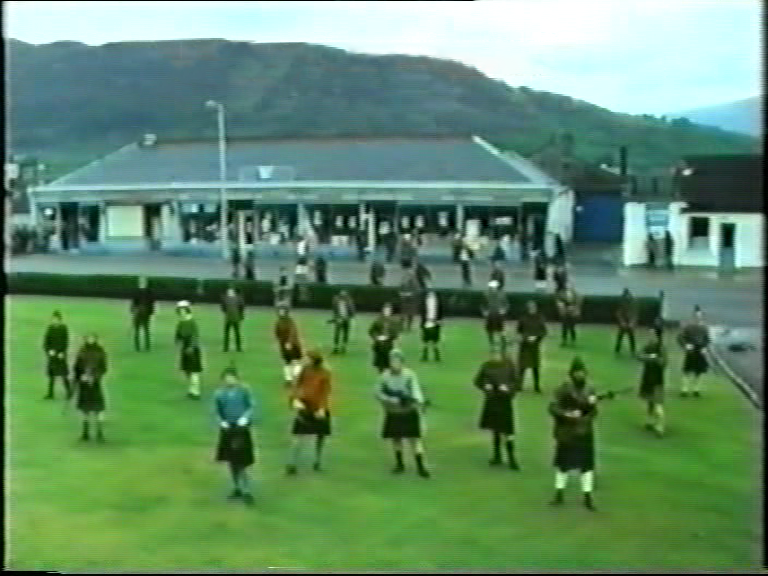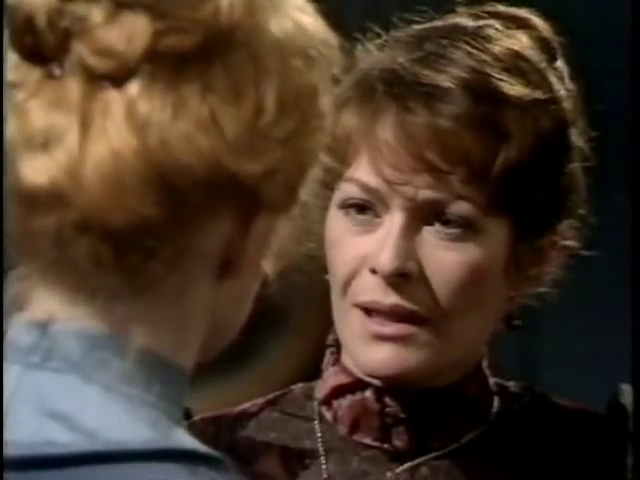Cooke Lez (2016). ‘We were the young lions in those days’: An Interview with Herbert Wise. Journal of British Cinema and Television, 13 (3), 484-99, doi: 10.3366/jbctv.2016.0331
Cooke, Lez (2017). Forgotten, Neglected and Lost: The Television Play in the Early 1950s – The Case of Anastasia (1953). Historical Journal of Film, Radio and Television, 37(1), 24-33, doi: 10.1080/01439685.2016.1272803
Abstract: The study of early British television drama has been made problematic by the fact that no programmes survive from before 1953 and only a few of the telerecordings made from 1953-54 have survived. Of those telerecordings Rudolph Cartier’s dramatisation of George Orwell’s Nineteen Eighty-Four (1954) has received considerable attention because of its innovative style and controversial subject-matter. Yet there are other telerecordings of plays made before Nineteen Eighty-Four which have received little or no attention, partly because some have only recently come to light and because access to them has been difficult. This article considers why television plays from the early 1950s have been forgotten, neglected or lost altogether, paying particular attention to one, Anastasia (1953), which was thought lost until relatively recently. While the stylistic innovations of Nineteen Eighty-Four have been rightly celebrated, the exceptional nature of Cartier’s production make it unrepresentative of most television plays from the period. The existence of plays such as Anastasia, however, offer an opportunity to provide another perspective on the television play in the early 1950s.
Cooke, Lez (2017). Six and ‘Five More’: Experiments in Filmed Drama for the BBC. Journal of British Cinema and Television, 14 (3), 298-323, doi: 10.3366/jbctv.2017.0375
Abstract: In 1964–6 John McGrath produced two series of filmed dramas for BBC2, the first under the series title Six, while the second series, provisionally titled ‘Five More’, was transmitted without a series title. At a time when most drama was being produced from the television studio, some of it still being transmitted live, this was a new departure, with the first six films pre-dating Up the Junction (1965) and the second series predating Cathy Come Home (1966), the two Wednesday Plays which have been celebrated for making the breakthrough to filmed drama at the BBC. Unlike the Loach/Garnett films, which were made by the Drama Department, McGrath’s series were commissioned by Huw Wheldon’s Documentary and Music Programmes department, which also produced Peter Watkins’ Culloden (1964), and were described as a hybrid of ‘documentary fiction’. In fact, they were an eclectic mix of different forms and styles, from Ken Russell’s silent cinema pastiche, The Diary of a Nobody (1964) to Philip Saville’s experimental The Logic Game (1965) and John Irvin’s lyrical Strangers (1966). This article seeks to reconsider these films as examples of forgotten television drama from the mid-1960s and to examine the claim that they represent a new form of ‘documentary fiction’.

Cooke, Lez, Hill, John and Smart, Billy (2017). ‘Introduction’ Special issue on Forgotten Television Drama. Historical Journal of Film, Radio and Television, 37 (1), 1-4, doi: 10.1080/01439685.2016.1272806
Abstract: An introduction to the themes of the Special Issue and its concern to investigate television dramas that might be regarded as ‘forgotten’, explore some of the reasons for this and assess the consequences of ‘forgottenness’ for both histories of British television drama and television drama more generally.
Hill, John (2015). ‘Blurring the lines between fact and fiction’: Ken Russell, the BBC and ‘Television Biography’. Journal of British Cinema and Television, 12 (4), 452-478m doi: 10.3366/jbctv.2015.0280
Abstract: Working for the BBC arts programmes Monitor and Omnibus during the 1960s, Ken Russell was responsible for a series of biographical films based on the lives of painters and composers. Tracing the development of Russell’s work from Prokofiev (1961) and Elgar (1962) through to Bela Bartok (1964) and The Debussy Film (1965), the article examines how Russell’s incorporation of elements of drama into the arts documentary generated arguments, both within the BBC and beyond, about the legitimacy of mixing ‘fact’ and ‘fiction’ in such works. These debates focused, in particular, on the use of ‘dramatic reconstruction’ and subjective ‘interpretation’ and the ‘fairness’ of the films’ treatment of the artists and composers with which they dealt. As a result of its unusually explicit representations of sex and violence, Russell’s film about the composer Richard Strauss, Dance of the Seven Veils (1970), took these arguments to a new level. Through an examination of the responses that the film generated, the article concludes that, due to the degree to which the programme departed from BBC norms of documentary practice and the related values of ‘impartiality’ and ‘good taste’, it became a work that tested the very limits of what the BBC then considered it possible to transmit.

Hill, John (2017). Dominic Behan and the Beginnings of Television ‘Troubles’ Drama. Historical Journal of Film, Radio and Television, 37 (1), 65-8, doi: 10.1080/01439685.2016.1272805
Abstract: Focusing on the largely forgotten television plays of Dominic Behan, this article examines how productions such as The Patriot Game (1969), Carson Country (1972) and The Folk Singer (1972) made use of song, self-conscious artifice and the mixing of artistic modes in order to engage with Irish history and question traditional forms of Irish patriotism. In doing so, the article also locates Behan’s work at a particular moment in television history when the conventions of television ‘troubles’ drama had yet to solidify and were open to formal experiment and the expression of unfamiliar viewpoints if also then liable to become the object of controversy.
Hill, John (2017). ‘Political Fantasy in a Realistic Situation’: The Scotch on the Rocks (BBC 1973) Controversy. Visual Culture in Britain, 18(3), 342-61, doi: 10.1080/14714787.2017.1396915
Abstract: Scotch on the Rocks was a five-part drama series broadcast by BBC1 in May and June 1973. It dealt with moves towards the creation of an independent Scotland and was referred to as a ‘political fantasy in a realistic situation’ by the BBC. The series was based on a novel co-written by Douglas Hurd, then political secretary to Conservative Prime Minister Ted Heath, and became the object of a runningcampaign and formal complaint by the Scottish National Party. This complaint was upheld by the BBC Programmes Complaints Commission with the result that the programme was never repeated and for a long time was believed to have been destroyed (though three episodes have now been discovered to exist). Although the programme’s effective disappearance has imbued it with a degree of mystique in certain quarters, there has so far been little serious discussion of it or the controversy that it generated. This article fills that gap by examining the political and broadcasting contexts in which the programme was produced, the criticisms directed at it and the curious ideological tensions evident in the series itself. In doing so, the article identifies the peculiar position that the series occupies within the history of Scottish television drama and indicates how it may be understood.

Hill, John (2017). ‘The Troubles we’ve seen’: Film, Television Drama and the Northern Irish Conflict in Britain. In Dawson, G., Dover, J. and Hopkins, S. (eds), The Northern Ireland Troubles in Britain: Impacts, Engagements, Legacies and Memories (243-260). Manchester: Manchester University Press.
Abstract: This chapter examines films and television dramas dealing with the impact of the Northern Ireland ‘Troubles’ in Britain and the controversies that they generated. It begins with a consideration of early TV dramas such as The Vanishing Army (1978) and Chance of a Lifetime (1980) dealing with the experiences of the returning British soldier. This is followed by an examination of the representation of the IRA’s activities on the British ‘mainland’ in productions such as The Patriot Game (1969), Hennessy (1975), Eighteen Months to Balcombe Street (1977) and The Long Good Friday (1979) as well as an analysis of how the miscarriages of justice that emerged in the wake of the IRA’s bombing campaigns were turned into (documentary)-dramas such as Who Bombed Birmingham? (1990) and In the Name of the Father (1993). The article then concludes with some consideration of the ‘peace process’ and the relative scarcity of dramas dealing with the divisions and tensions that were a feature of the earlier period.
Hill, J. (2022) ‘Play for Today and Northern Ireland in the 1970s’, Journal of British Cinema and Television 19 (2) , pp. 217-40. https://www.euppublishing.com/doi/abs/10.3366/jbctv.2022.0618
Abstract: This article sets out to explain the factors influencing the making of Plays for Today about Northern Ireland during the 1970s and how these partly account for the characteristics of the work that was produced. The discussion initially identifies the problems posed by filming in Northern Ireland and the managerial scrutiny to which plays dealing with the ‘troubles’ – such as Carson Country and The Legion Hall Bombing – were subject. It then goes on to examine how these factors encouraged the ‘oblique’ artistic strategies evident in Taking Leave and Your Man from Six Counties and the more self-reflexive and anti-naturalist approach adopted by Come the Revolution, Catchpenny Twist and The Last Window Cleaner. In doing so, the article aims to retrieve a largely ‘forgotten’ period of television drama production and add to our understanding of how television drama first tackled the contemporary Northern Ireland ‘troubles’.
Smart, Billy and Wrigley, Amanda (2016). Television History: Archives, Excavation and the Future. A discussion. Critical Studies in Television: The International Journal of Television Studies, 11 (1), 1-14, doi: 10.1177/1749602015618634
Abstract: This article considers possible futures for television (TV) studies, imagining how the discipline might evolve more productively over the next 10 years and what practical steps are necessary to move towards those outcomes. Conducted as a round-table discussion between leading figures in television history and archives, the debate focuses on the critical issue of archives, considering and responding to questions of access/inaccessibility, texts/contexts, commercial/symbolic value, impact and relevance. These questions reflect recurrent concerns when selecting case studies for historical TV research projects: how difficult is it to access the material (when it survives)? What obstacles might be faced (copyright, costs, etc.) when disseminating findings to a wider public? The relationship between the roles of ‘researcher’ and ‘archivist’ appears closer and more mutually supportive in TV studies than in other academic disciplines, with many people in practice straddling the traditional divide between the two roles, combining specialisms that serve to further scholarship and learning as well as the preservation of, and broad public engagements with, collections. The Research Excellence Framework’s imperative for academic researchers to achieve ‘impact’ in broader society encourages active and creative collaboration with those based in public organizations, such as the British Film Institute (BFI), who have a remit to reach a wider public. The discussion identifies various problems and successes experienced in collaboration between the academic, public and commercial sectors in the course of recent and ongoing research projects in TV studies.
Smart, Billy (2016). ‘Nats Go Home’: Modernism, Television and Three BBC Productions of Ibsen (1971–1974). Ibsen Studies, 16 (1), 37-70, doi: 10.1080/15021866.2016.1180869
Abstract: A discussion of debates relating to television ‘naturalism’ in relation to three TV adaptations of the work of Ibsen: The Wild Duck (1971), Hedda Gabbler (1972) and The Lady from the Sea (1974).

Smart, Billy (2017). Drama for People ‘in the know’: Television World Theatre (BBC 1957–1959) and Festival (BBC 1963–1964). Historical Journal of Film, Radio and Television, 37 (1), 34-48, doi: 10.1080/01439685.2016.1272810
Abstract: This article provides a survey of the pioneering BBC series of theatrical adaptations Television World Theatre (1957-59), examining BBC production documentation and audience research to identify the institutional discourses that surrounded the making and transmission of these programmes. Recurrent arguments throughout the production of the series form a framework of institutional expectations within which classic theatrical plays were commissioned, made and presented for BBC Television. Having identified these questions (relating to audience address, populism, the viability of creating a unified ‘house style’ across the diverse plays included in an anthology series), the article assesses the contemporary press discourse surrounding Television World Theatre before concluding with a consideration of how the experience of Television World Theatre affected expectations the next time that the BBC attempted a similar project in Festival (1963-4).